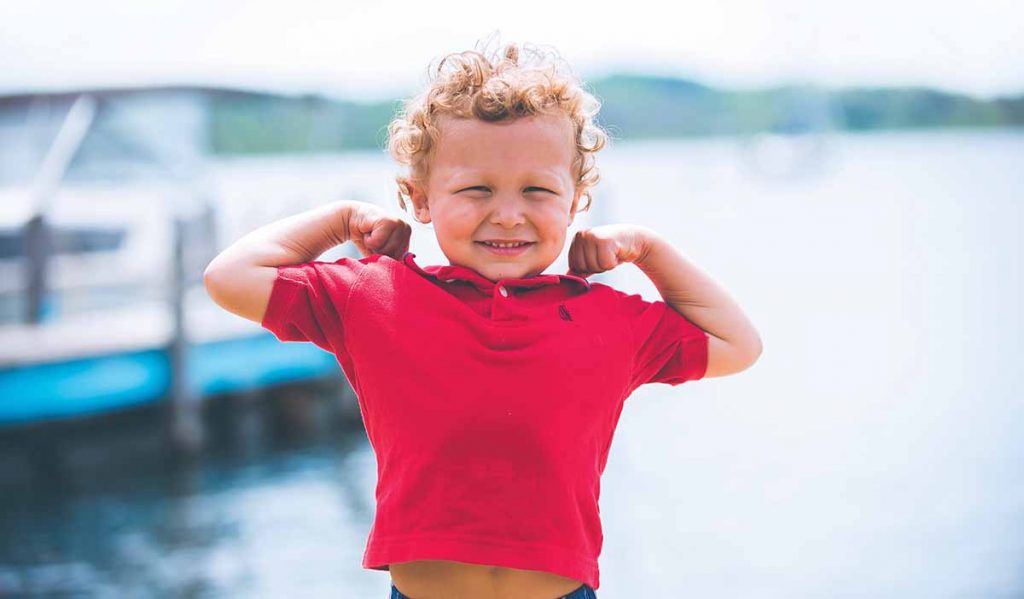By Melissa Schoorman
Many children under the age of 15 experience a form of anxiety, which can impact their daily lives and activities. Educators are now beginning to look at the possibility of turning some of those known worries into stimuli for resilience discussions so that our children can enter the world beyond the school gates with confidence.
According to Dr Jodi Richardson, wellbeing expert and co-author of Anxious Kids: How children can turn their anxiety into resilience, the future has never been so bright for anxious kids.
“The mental health landscape, which was once dry and barren, is now green and filled with hope and the promise of recognition; of understanding, of acceptance, empathy and compassion; and rich in resources, support and help.”
Anxiety affects everyone at some stage in their lives, whether it is from an early age or in adulthood. Anxiety is caused when we are confronted with situations that make us feel stressed, tense, uncomfortable, angry or frightened. Anxiety triggers the flight-or-fight response in the brain to protect us from danger. It is an emotion that affects an estimated half a million Australian children and eleven million worldwide. Amongst these alarming statistics is the most daunting of facts, that the majority of these children experience anxious emotions that never go away, even once the confronting situation has passed.
“Over time, one-in-four adults will experience an anxiety disorder. Of those, half will have had their first symptoms by the time they are 15-years-old,” says Jodi Richardson and co-author Michael Grose in their book.
For many children, anxiety prevents them from building any sort of sustainable resilience, which is a life skill and vital to overcome unavoidable adversity. Resilience is built by the individual characteristics we are born with such as our genes and personality but also by our environmental factors, including our family, socio-economic status, community and culture.
Whilst there are some things we cannot change, such as our biological makeup, there are many things we can adjust. Transforming our anxiety into resilience is something that does not always require help from professionals. It is a skill that can be worked on at home and school, and at times, is as minor as a shift in mindset. Of course though, there are times that anxiety is best dealt with by experts in the field, through a referral from your local general practitioner.
Build, strengthen and support growing relationships
It is vital for children to surround themselves with family and friends with whom they feel comfortable. A positive support network can be the key for children to feel empowered to take risks, explore new opportunities and show confidence. However, there is a fine line between guiding your child away from adversity and protecting them from adversity.
“Our role isn’t to protect them from life’s hardships, but to steer and guide them, and to help them get back up again when life knocks them down. Remembering this is as much for our own sanity as it is for their resilience,” says Dr Jodi Richardson.
Create opportunities for personal growth
Personal growth can prosper from a variety of methods, be it investing in travel, sport, music, arts, volunteering or being creative. Children who experience anxiety can feel hesitant to immerse themselves in opportunities that will take them out of their comfort zone. With an element of uncertainty in any opportunity, a child’s anxiety can be heightened. A wave of doubt can cloud their vision, resulting in them placing unnecessary expectations and pressure on themselves. It is important to get your child participating in co-curricular activities such as sport or performing arts from a young age to instil a strong sense of personal growth and resilience. In an environment such as sport, they have the opportunity to experience sportsmanship, team effort, leadership and endure the emotional rollercoaster that success and failure ignites. Performing arts is also a great way to boost confidence to perform on stage, to develop coordination and rhythm and to create long lasting friendships.
Focus on managing emotions
Schools are now dedicating time to wellbeing and mindfulness to ensure students receive a break from the cognitive demands they receive on a daily basis. Meditating for 10 minutes per day is an effective way to harness a positive mindset. For example, at Toorak College Junior School, students have a compulsory wellbeing session at the beginning of each day to help them identify, calibrate and create a positive mindset as they head into a new school day. To further create a sense of harmony in the Junior School, students also have what is called a “Letters of Kindness” letterbox where they write heartwarming messages directed at friends and staff. A selection of these letters are then read out in assembly to help spread the concepts of kindness and gratitude. The core belief of this practice is that positivity breeds future positivity. This can be related to the notion of paying it forward.
It is crucial to note that anxiety does not have to impact a child’s life in a negative way. As a parent, you are never alone and it is fundamental to develop an open dialogue with your child so that they feel supported, valued and heard. Seeking advice from professionals at your child’s school also provides valuable insight to ensure that your child’s collective support system is working towards a common goal. Finally, we must be reminded that the more our children are exposed to new and foreign opportunities, the more likely they will take safe risks and be open to personal growth.
If you believe your child is suffering from anxiety, no matter how minor, it is vital to consult with your child’s school and/or your local GP to gain advice for future steps.
Miss Melissa Schoorman is the Head of Wardle House, Deputy Principal of Toorak College


